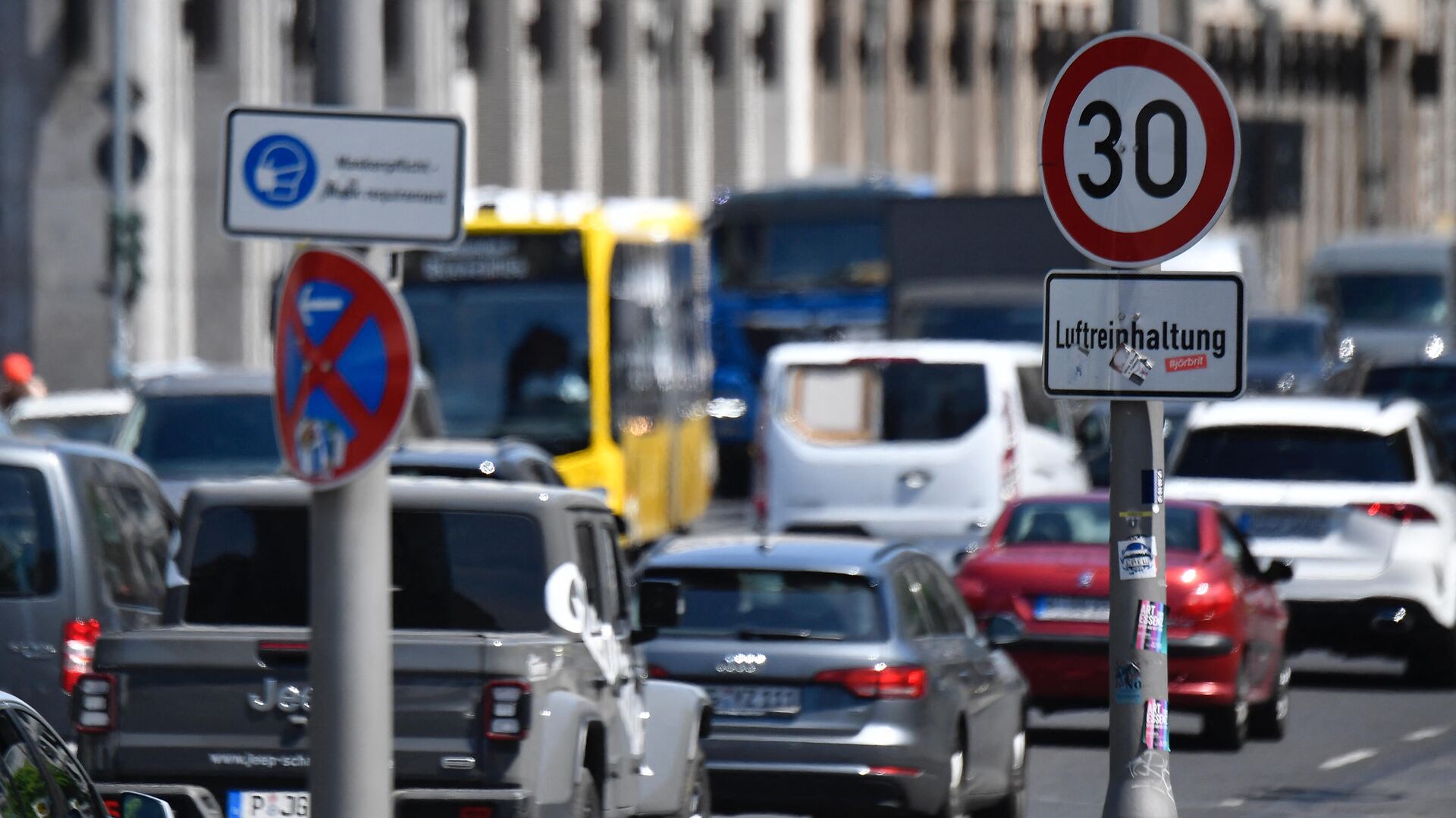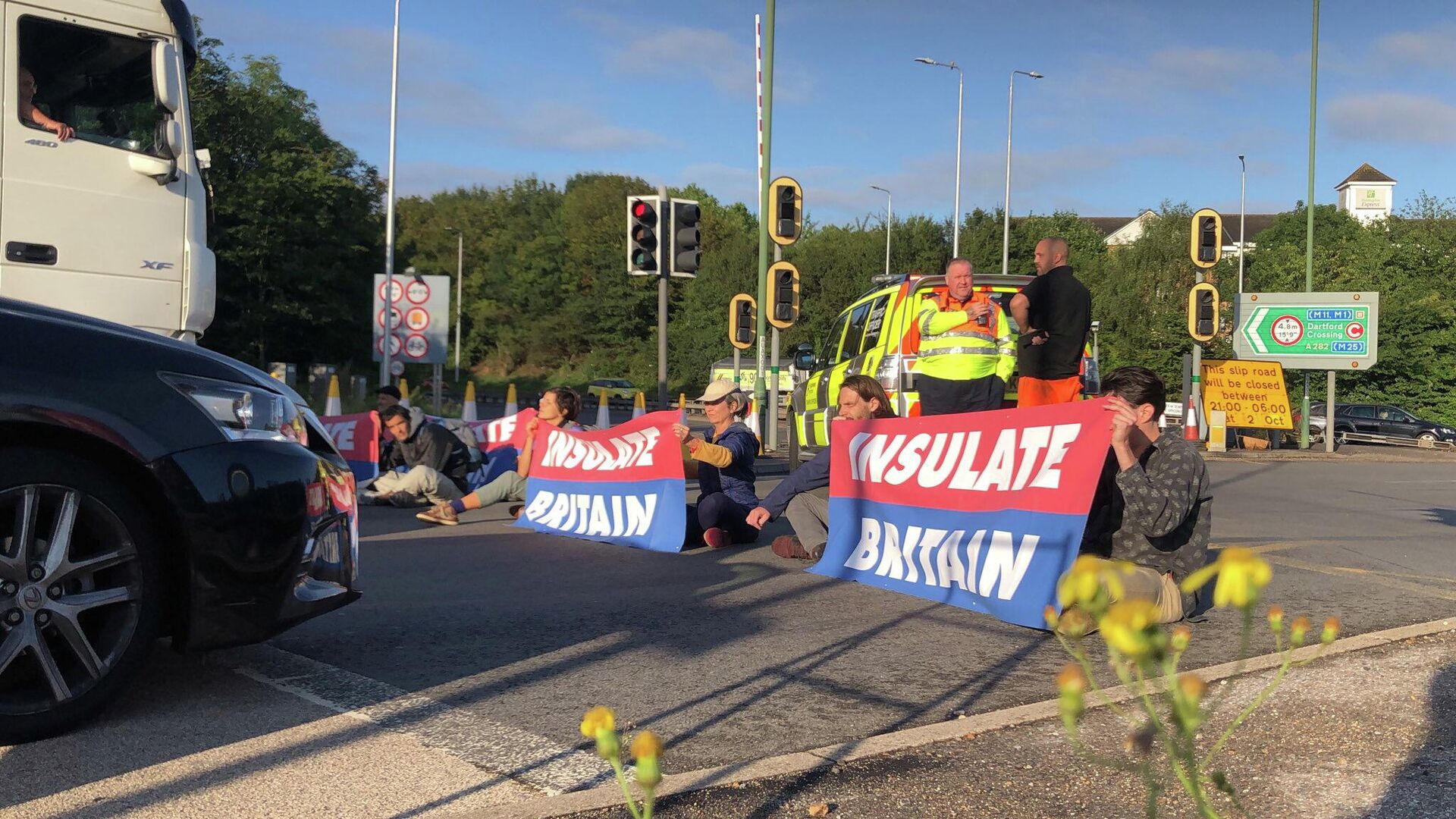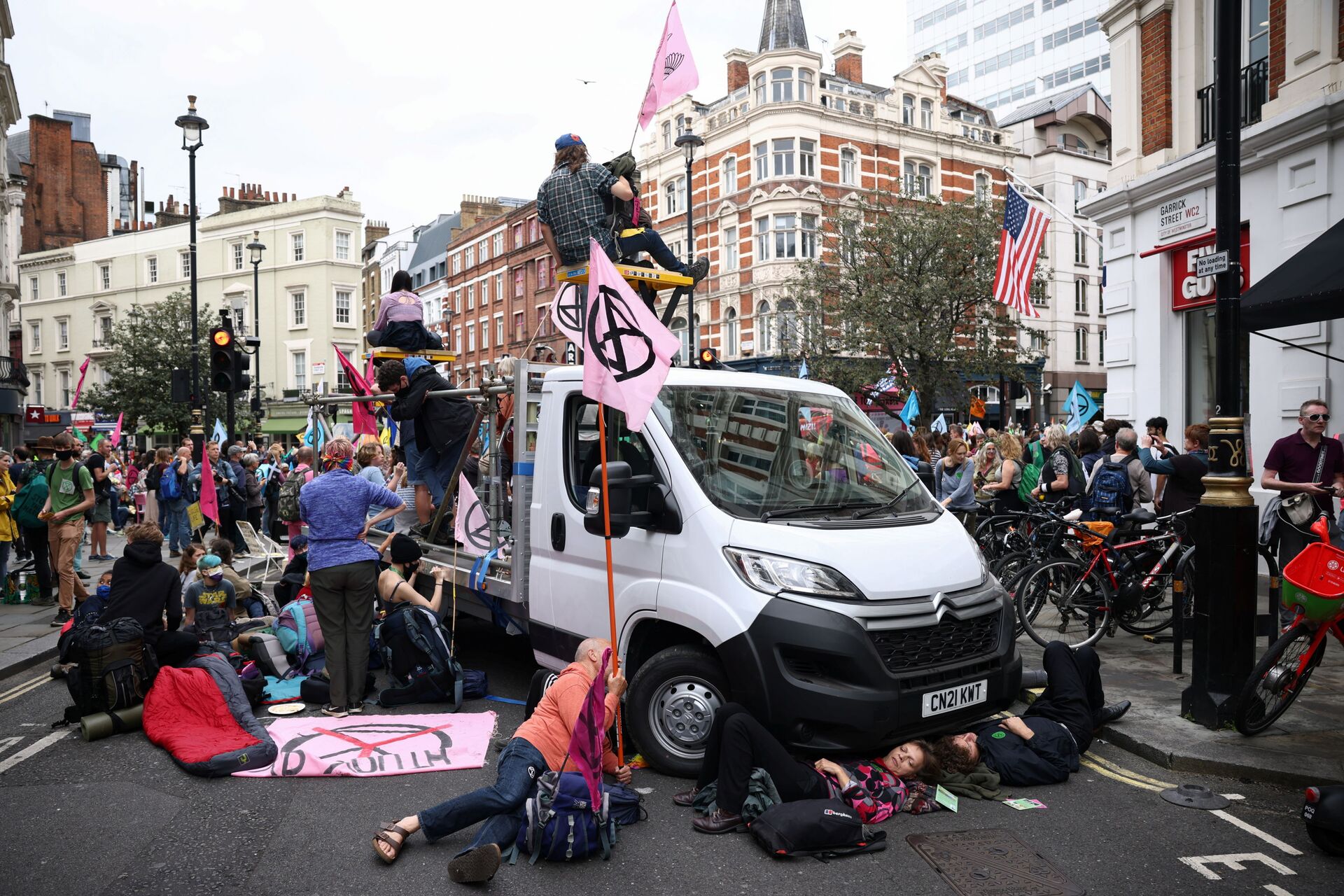Is the Age of the Car Over as Politicians Around Europe Declare War on the Motorist?
14:29 GMT 16.09.2021 (Updated: 15:15 GMT 28.05.2023)

© AFP 2023 / TOBIAS SCHWARZ / Speed limit
Subscribe
Green MEPs this week urged European Union leaders to speed up proposals to fight climate change and called for a complete end to the production of petrol and diesel cars by 2030. It comes as motorists around Europe and the world are facing an avalanche of measures designed to slow them down or get them out of their vehicles altogether.
The introduction of a new 30 kilometre per hour speed limit by the Mayor of Paris, Anne Hidalgo, has been greeted with dismay by taxi drivers, commuters and other motorists.
Hidalgo announced last weekend she would be standing in the French presidential elections in April 2022.
The Times’ Paris correspondent, Adam Sage, wrote: “Hidalgo…looks set to be anointed by her Socialist Party as its presidential candidate as a green-hued left winger on the back of a campaign to limit car use in Paris.”
Hidalgo has not only lowered speed limits across Paris but she has doubled the number of cycle lanes, pedestrianised a 3km section of road by the Seine and taken away hundreds of parking spaces.
But it is not only in France that politicians are declaring war on the motorists.
In Berlin new speed limits have been introduced which are advertised as being for “Luftreinhaltung (Air Pollution Control)” and in Britain drivers are under attack as never before.
A congestion charge for central London was introduced back in 2003 and last year, as Transport for London (TfL) faced a financial crisis due to the pandemic, the Mayor of London Sadiq Khan decided to increase it and extend its operating hours.
Across London and many other cities 20 miles per hour speed limits have been introduced, cycle lanes added and Low Traffic Neighbourhoods (LTNs) have also sprung up.
Boris Johnson’s government supports LTNs and has given funding towards them but it is local councils who are getting the political flak for introducing them.
LTNs have been introduced - often without proper consultation - on hundreds of residential roads and those who support them say they will not only deter driving but encourage “active travel” - in other words, walking and cycling.
But opponents say LTNS do not magically evaporate traffic or reduce air pollution but simply displace it, increasing congestion in other roads.
While the debate rages on, more and more motorists are receiving letters through the post telling them they have been fined for passing through an LTN.

Insulate Britain protesters on the M25 motorway outside London
© REUTERS / INSULATE BRITAIN / M25 protest
Meanwhile motorists using London’s orbital motorway, the M25, have been the target this week by campaigners from a group called Insulate Britain, who want efforts stepped up to improve house insulation and therefore reduce the amount of energy used in the UK.
Graham Winters, a retired salesman who lives near Brighton in the south of England, said he was “outraged” by the M25 protest and by the prevailing climate of discrimination against motorists.
Mr Winters told Sputnik: “I can’t tell you how outraged I am by that. The police were sitting there watching them. How is that allowed? Thousands of people going about their business were held up for hours because half a dozen unemployed people decided to sit in the road.”
He said the M25 protest was completely counter-productive because it angered people and did not endear them to Insulate Britain’s message.
‘If any of you are in any discomfort or need anything at all - just let me know…’
— Caoimhín Thomas 🏴🇬🇧 (@KevMonynys) September 15, 2021
Seriously??
If this is the way the police pander to these wasters, is there any wonder they keep on disrupting our daily lives? #InsulateBritain pic.twitter.com/wAaHvK1bwr
Extinction Rebellion have also been blocking roads and bridges and carrying out other protests in an attempt to highlight the Climate Emergency.
Politicians meanwhile have brought out more and more policies which targets motorists.
Mr Winters said: “Motorists are a very, very easy target. You have a car registration number so you are easy to find. They can just send you a £100 fine. It’s arbitrary. Cyclists, pedestrians - no-one else is so readily identifiable.”
He said the simple fact was that for many people - especially people with young families and those who travel for a living - there was no affordable alternative to the car or van.
“I love driving my car, but I also love not driving. I love going by train, but only when it is reliable and affordable. The trouble is that in Britain it is too often neither of those,” said Mr Winters.

